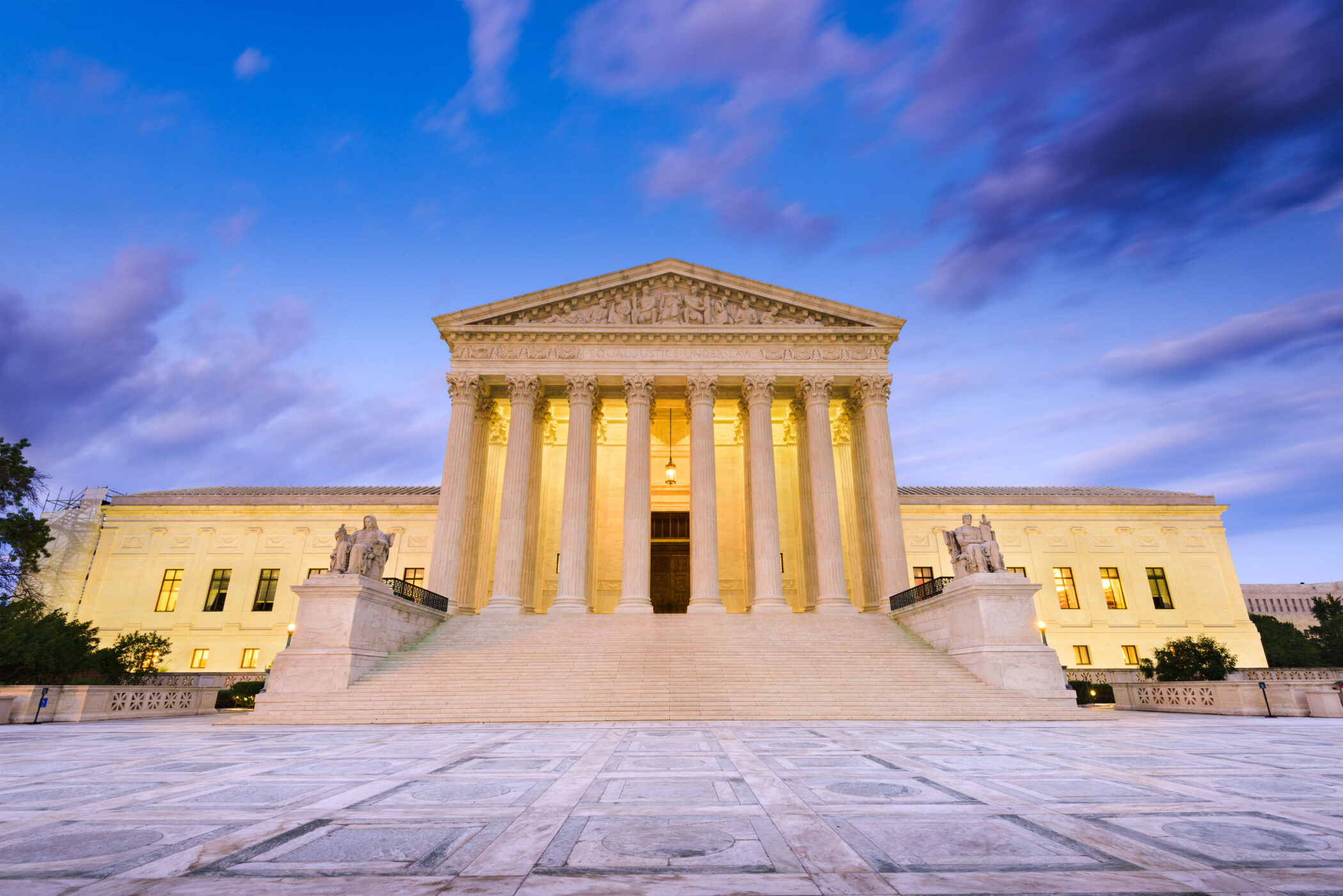The U.S. Supreme Court last week ruled in Americans for Prosperity Foundation v. Becerra that it is unconstitutional for California to require charities to provide the names and addresses of its largest donors to the state’s Attorney General. The ruling sent a spike through the heart of a charitable disclosure rule issued by then-California Attorney General Kamala Harris. The name of the lawsuit has technically been changed to ‘v. Bonta‘ – the Attorney General who took Becerra’s place when he accepted a position in the Biden administration.
The lawsuit pitted AFPF and the Thomas More Law Center against the California Attorney General’s Office. The groups sued in 2015 when Harris served as AG. (Xavier Becerra replaced Harris as the California Attorney General in 2017.) The law center and AFPF argued that the California rule chilled, or deterred, donors from making contributions.
KJI joined 35 other organizations in filing an amicus brief to the court arguing that the First Amendment protects the privacy of charitable donors. (Kansas Policy Institute owns both KJI and the Sentinel.) In total, more than 300 organizations filed 40 amici briefs in support of AFPF and the Thomas More Law Center. The diverse groups included Wisconsin Right to Life, NARAL Pro Choice North Carolina, the ACLU, and the Chambers of Commerce of the United States of America.
On partisan lines, a divided Supreme Court struck down California’s rule that required donor disclosure to the state.
While the ruling was on action taken by California, it is expected to set a precedent applicable across the United States.
Court issues ‘landmark’ First Amendment decision in Becerra
The Thomas More Law Center called it a “landmark First Amendment case.”
“In the internet age, where doxing one’s opponents has led to job loss, boycotts, ostracization, and violence, the fear of such repercussions should one’s charitable contributions become public could be enough to stymy giving, leaving the personal beliefs of many Americans to go unrepresented in the public square,” the Thomas More Law Center said in a press release heralding the Supreme Court’s decision.
AFPF CEO Emily Seidel said the decision protects Americans from being forced to choose between staying safe or speaking up.
“The ability to maintain one’s privacy makes it possible for people to join together in causes and movements,” she said. “Especially given how polarized our country has become, the work of addressing injustice and advocating for change is hard enough without people facing fear of harassment and retaliation from the government and from potentially violent opposition.”
Donors and charities disclose some information to the IRS, and California vowed to protect the confidentiality of that information. However, according to AFPF Court filings, the California AG’s office posted thousands of the returned forms online.
Becerra decision says CA rule violated rights of association
Chief Justice John Roberts wrote that the AG’s disclosure requirement imposed a widespread burden on donors’ rights of association. And Justices Brett Kavanaugh and Amy Coney Barrett joined the opinion in full.
“And this burden cannot be justified on the ground that the regime is narrowly tailored to investigating charitable wrongdoing, or the state’s interest in administrative convenience is sufficiently important. We therefore hold that the up-front collection of Schedule Bs is facially unconstitutional,” Roberts wrote.
In the dissent written by Justice Sonia Sotomayor, the minority fretted that the decision “marks reporting and disclosure agreements with a bull’s eye.”
Justices Stephen Breyer and Elena Kagan joined in the opinion. They said precedent and common sense do not support the majority’s decision.
They warned that entities could easily commit fraud using the First Amendment as cover.
“It does not matter if not a single individual risks experiencing reprisal from disclosure, or if the vast majority of those affected would happily comply. That is all irrelevant to the Court’s determination that California’s Schedule B requirement is facially unconstitutional,” the dissent reads.


